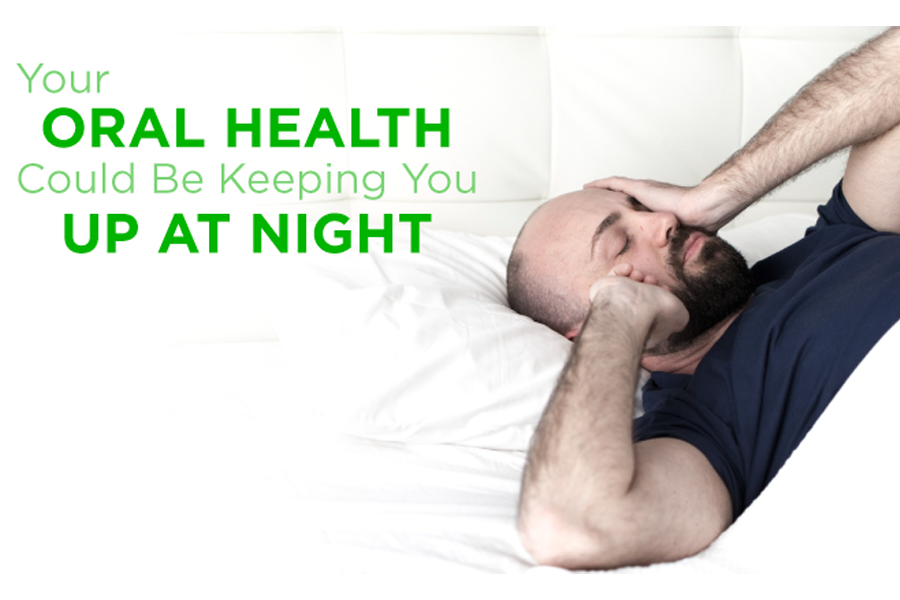Your Oral Health Could Be Keeping You Up at Night
By Shelby Tatomir on September 3, 2020 in Healthy Living

Do you snore or grind your teeth while sleeping? Not only does this lead to a poor night’s sleep, it can also wake you or your partner up night after night. If your snoring or teeth grinding is affecting your sleep, don’t ignore it any longer, it’s likely to only get worse.
Your dental health and sleep habits could signal an underlying condition is affecting your rest, like sleep apnea — though not all snoring is a sign that something is wrong.
About 40 percent of adult men and 24 percent of adult women snore every night. When we’re snoozing and snoring, the airflow from breathing causes the tissue in the back of our throat to vibrate. The narrower your airway is, the louder your snoring will be.
About half of individuals who snore also have a sleep disorder. Sleep apnea is a condition where your airway becomes too narrow and closes, causing you to make more of a choking noise and wake up with a start. If you wake up in the middle of the night gasping for air, have ongoing sleepiness during the day, and sleep with your mouth open, talk to your doctor and your dentist to see if you may have a sleep disorder.
Diagnosing Sleep Apnea
After evaluating your symptoms, your dentist or primary care physician may suspect you have sleep apnea and refer you to a sleep disorder center*. There, you will spend the night as you normally would – sleeping - while specialists monitor you. The sleep specialists will watch everything from your heart, lung, and brain activity to your breathing patterns, body movements, and blood oxygen levels while you’re asleep.
If they believe your sleep is abnormal and you have sleep apnea, a common treatment is to use a positive airway pressure device (CPAP) while sleeping. This device fits over your head and nose, and may also cover your mouth. It gently blows air into your airway, helping to keep it open and avoid narrowing during sleep.
One in four patients with sleep apnea also habitually grind their teeth at night. Teeth grinding, or bruxism, can have negative side effects like headaches and jaw pain, as well as long-term side effects like temporomandibular joint disorder, or TMJ. This specific joint connects your jaw to your skull, and it can become injured if you continuously grind your teeth. Not everyone who grinds their teeth develops TMJ, though.
*An at-home test may also be an option.
Nighttime Teeth Grinding and Your Oral Health
Another repercussion of continued teeth grinding each night is damage to your teeth. If you’re gnashing, grinding, gnawing, or clenching, you can wear down your teeth over time. This bad habit can even remove protective enamel, crack your teeth , or wear notches into them.
It’s important to contact your dentist or primary care physician if you experience:
- Continued teeth grinding or clenching while you sleep.
- Sleep disruption.
- Headaches in the temples.
- Damaged tissue on the inside of the mouth after sleeping.
- Soreness in the jaw, neck or face after sleeping.
- Pain similar to an earache.
- Tight jaw muscles.
- A locked jaw that won't open or close completely.
- Teeth that are flattened, fractured, chipped or loose.
A mouth guard while sleeping can make a world of difference for a habitual teeth grinder. Your dental and/or primary care physician can help you choose the best treatment for addressing oral health issues that keep you up at night.
Find a dentist near you to help put these nighttime teeth nightmares to bed? Click here! If you’re in need of a dental plan to improve your oral health habits, click here!